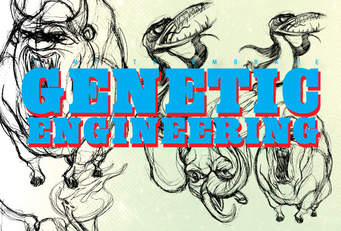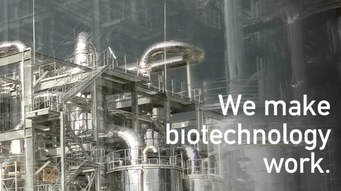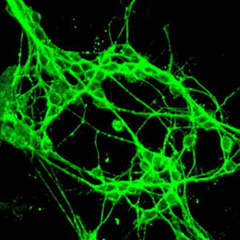
GENETIC ENGINEERING
Genetic engineering is the process of using recombinant DNA (rDNA) technology to alter the genetic makeup of an organism. Traditionally, humans have manipulated genomes indirectly by controlling breeding and selecting offspring with desired traits. Genetic engineering involves the direct manipulation of one or more genes. Most often, a gene from another species is added to an organism's genome to give it a desired phenotype

INTELLECTUAL PROPERTY RIGHTS AND ETHICAL ISSUES IN BIOTECHNOLOGY AND ENTREPRENEURSHIP
Intellectual property (IP) refers to creations of the mind, such as inventions; literary and artistic works; designs; and symbols, names and images. IP is protected in law by, for example, patents, copyright and trademarks, which enable people to earn recognition or financial benefit from what they invent or create. By striking the right balance between the interests of innovators and the wider public interest, the IP system aims to foster an environment in which creativity and innovation can flourish.

BIOPROCESS ENGINEERING AND TECHNOLOGY
Bioprocess engineering, is a specialization of chemical engineering or Biological engineering, It deals with the design and development of equipment and processes for the manufacturing of products such as agriculture, food, feed, pharmaceuticals, nutraceuticals, chemicals, and polymers and paper from biological materials & treatment of waste water. It also deals with studying various biotechnological processes used in industries for large scale production of biological product for optimization of yield in the end product and the quality of end product.

FOOD BIOTECHNOLOGY
It is the application of food science & engineering principles to the
selection, preservation, processing, packaging, distribution, and use of safe, nutritious, and
wholesome food. Application of technology to modify genes of animals, plants, and microorganisms to
create new species which have desired production, marketing, or nutrition related
properties. Called genetically engineered (GE) or genetically modified (GM) foods.

GENOMICS AND PROTEOMICS
Genomics is the study of entire genomes, including the complete set of genes, their nucleotide sequence and organization, and their interactions within a species and with other species. The advances in genomics have been made possible by DNA sequencing technology. Proteomics, the study of the total protein complement of a genome, is essential if we are to fully exploit the knowledge acquired as a result of mapping the entire human genome. The key strength to proteomics is that a DNA sequence alone is enough to figure out complex biological systems present within living cells.